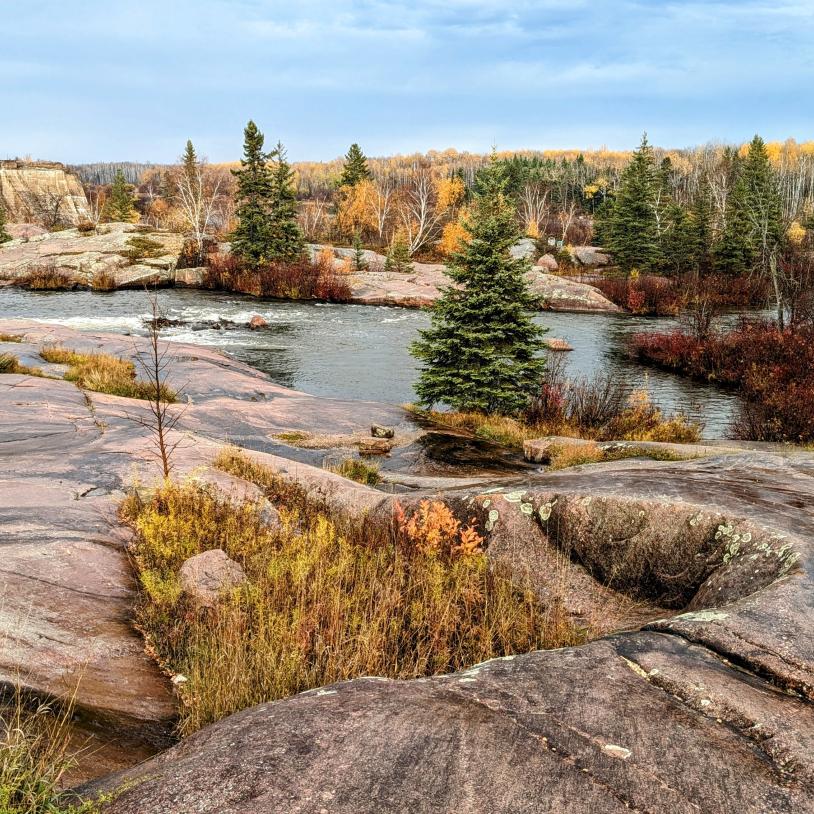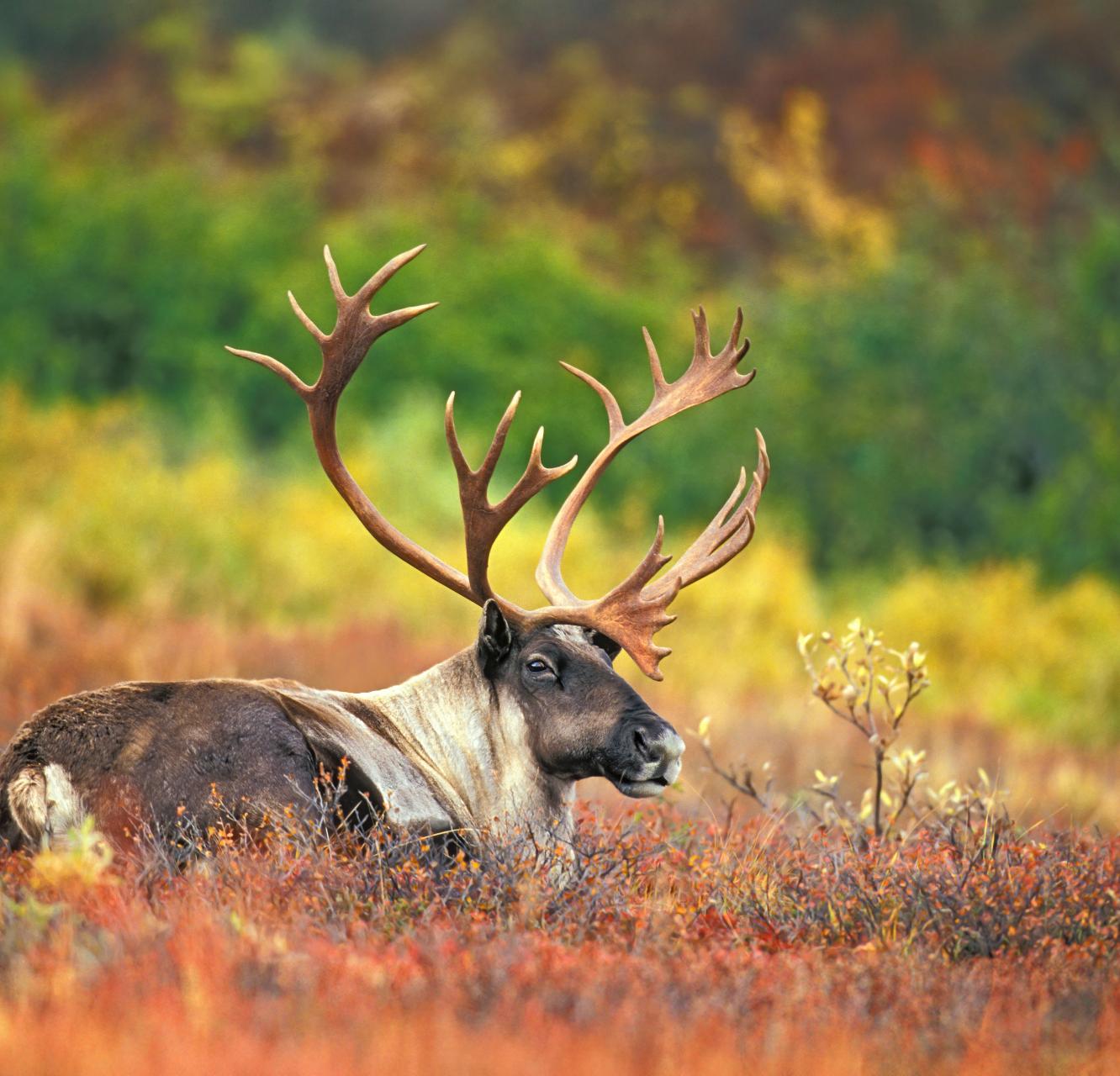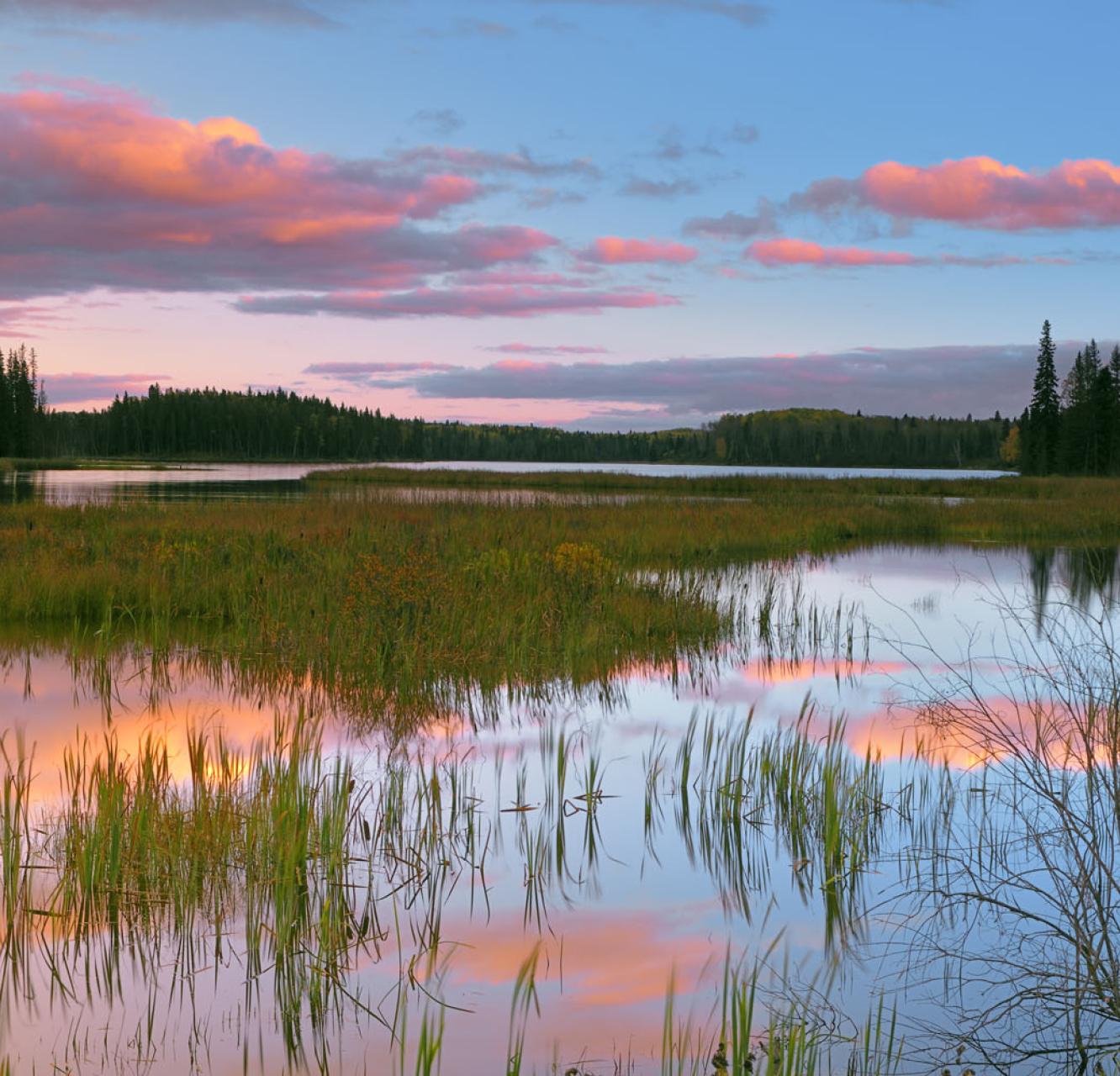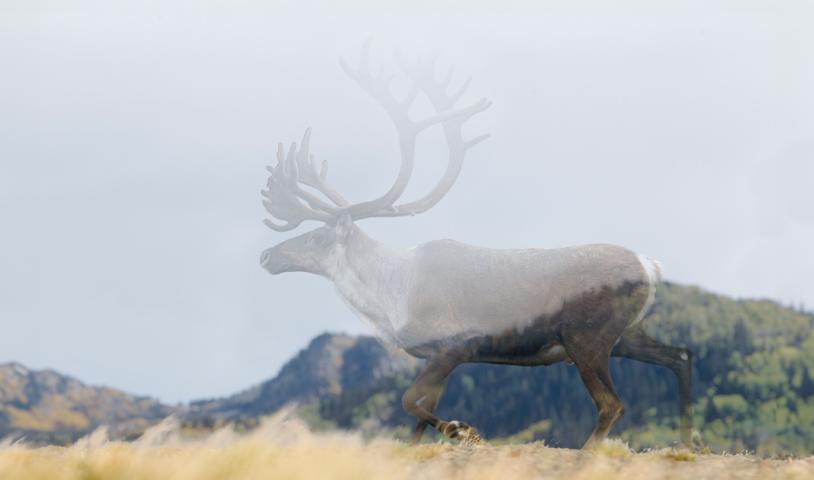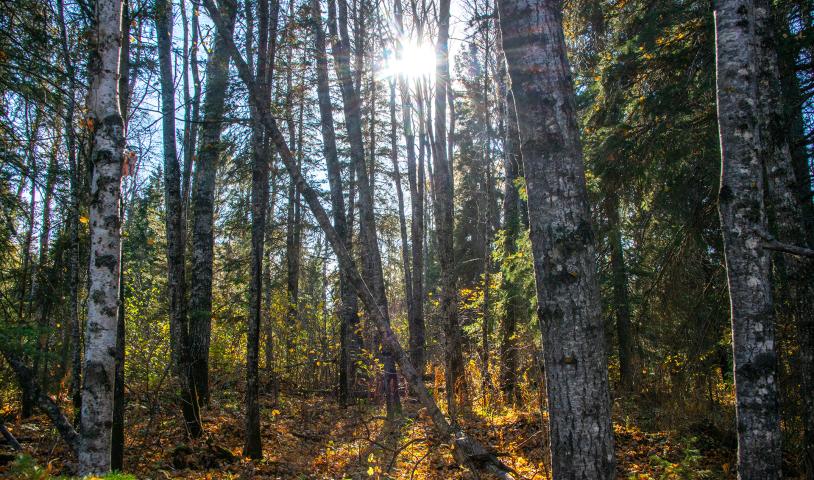Tembec's Devastating Logging Plans Revealed to the Public
Wednesday, August 18, 2010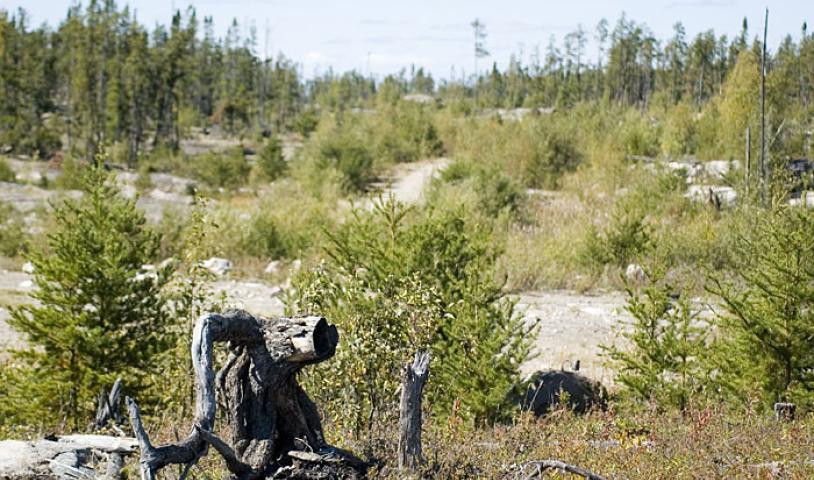
Sneak peek at plan of supposed 'green' corporation includes logging areas 10-times the legal size limit, as well as logging ALL the winter habitat of a woodland caribou herd
On March 20, Tembec showed off their logging plans for the next several decades in a University of Manitoba classroom. After being alerted by a concerned citizen, Eric Reder, Campaign Director for the Wilderness Committee, attended the lecture and recorded it. Both the Manitoba government and Tembec have told the Wilderness Committee in recent weeks that Tembec's logging plan could not be legally released to the public yet.
Tembec's plans for the coming years include logging areas that are over 1,000 hectares in size, ten-times larger than the government currently permits. Tembec also unveiled a plan to log the entire winter habitat of the Owl Lake woodland caribou herd.
"What's going on in our public forests?" questioned Reder. "This company is certified as a good steward of the land, yet they put forth these unbelievable plans to increase their impact on our forests. How much more destruction are Manitobans supposed to take?"
Logging is taking place in primary forests, untouched areas that have not been logged before. Primary forests are pieces of wilderness that few countries in the world have left. When a primary forest is logged, the interdependent web of living organisms-plants, animals, bugs, and fungus-does not automatically regenerate. It can take more than a century for the forest to recover. If the clearcuts are replanted with a single species of trees and then treated with herbicides, a tree plantation is created, instead of a forest. Increasing the size of clearcuts will increase the amount of primary forest lost. A 1,000-hectare logging area is about one-third the size of Birds Hill Provincial Park.
"Contrary to what the logging lobby will tell you, logging primary forests has a massive impact," said Reder. "In many cases it has a permanent impact."
Tembec also showed plans to log the entire winter range of the Owl Lake woodland caribou herd-considered at high risk by the Manitoba government-as a grand experiment. Woodland caribou are listed under Manitoba's Endangered Species Act. Recent studies clearly demonstrate that woodland caribou have a strong adverse reaction to clearcuts, moving at least 13 kilometers away from disturbances for decades afterward. Woodland caribou prefer to stay in primary forest areas, and current census data shows the Owl Lake woodland caribou herd is in decline. Logging their entire winter habitat could result in extirpation. Tembec's plan to log the entire caribou habitat may stem from this statement by Vince Keenan, Tembec's Divisional Forester in Manitoba, made at the university lecture:
"We've proven harvesting does not affect wildlife populations."
"I was outraged during the presentation. I'm even angrier after reviewing the tape and hearing that statement," said Reder. "The presentations were misleading and in some cases outright wrong. How can this supposedly 'green' corporation be allowed to present this to university classes?"
Tembec is a large multinational logging corporation that controls 9,000 square kilometers of public land in eastern Manitoba, and currently logs provincial parks. Recently they announced they would stop using recycled content in their paper plant, which means more trees will need to be cut down.
Over 10,000 Manitobans have written to the current government and asked them to stop allowing provincial parks to be logged. Right now the provincial government and Tembec are negotiating a long-term logging license. The Wilderness Committee wants the government to remove both provincial parks and woodland caribou habitat from Tembec's license area when they renew the license on December 31, 2008.
- 30 -
